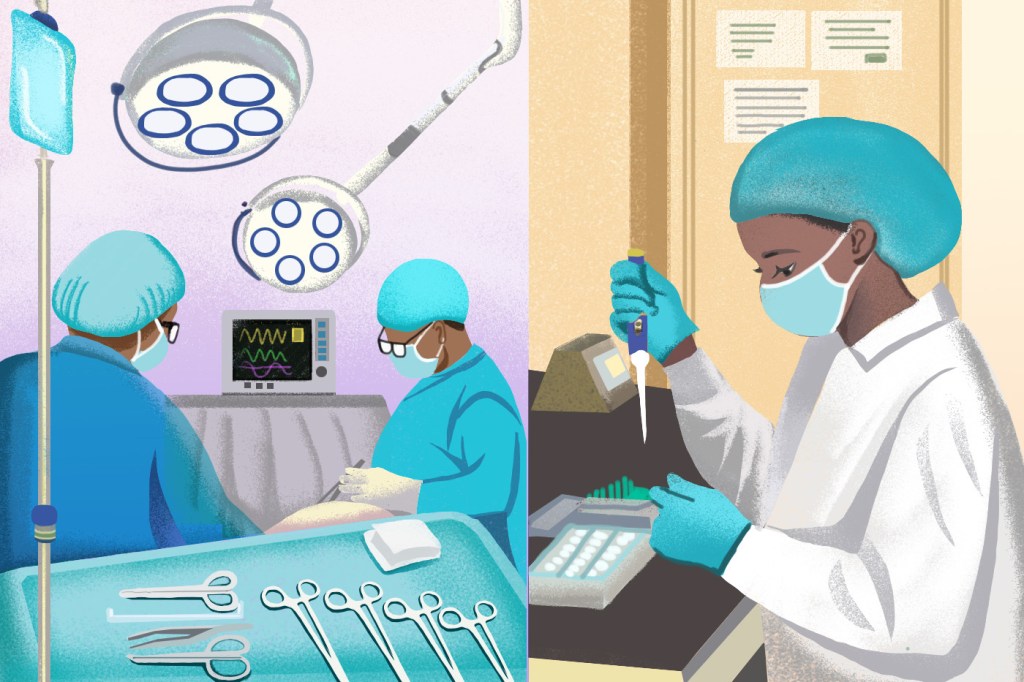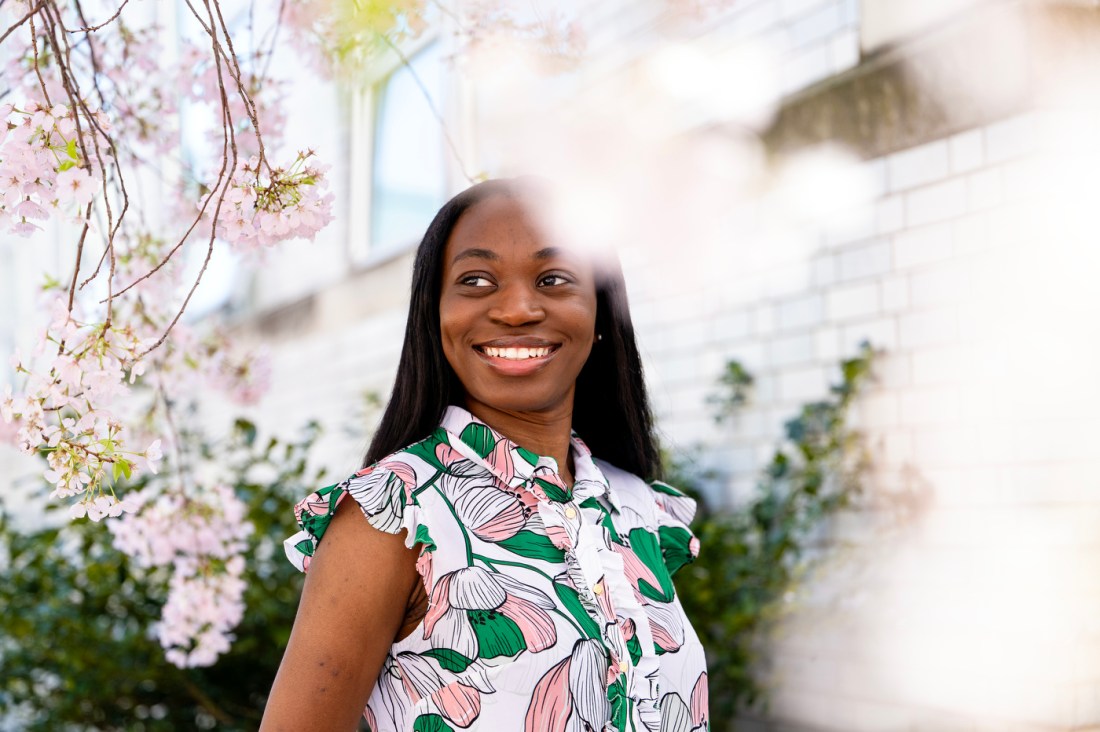Malaria and maternity wards: This Northeastern student balances medical research and hospital work
during Ghana co-op
Enam Fiattor, a first-generation Ghanaian-American, wanted a co-op experience to connect her to her roots and decide what path to take in the world of public health. These co-ops helped her with both.

Enam Fiattor spent her childhood visiting Ghana and getting to know the country where her parents grew up. But this past fall, she got the chance to get to know Ghana — and herself — on a deeper level by spending a semester in the country’s capital working as a co-op.
The Northeastern University student spent several months working for not one but two medical organizations, addressing some of the country’s most poignant medical issues: malaria and maternal health.

“I’ve tried to put it upon myself to stay connected to my roots,” Fiattor said. “I (also) just have some passion for global health, especially maternal and children’s health … (and) I knew (those) were some of the most prevalent things going on there.”
Fiattor worked two days a week at Noguchi Memorial Institute for Medical Research in Accra. There, she was in the immunology department doing research for the national malaria elimination program. The other three days of the week, she spent at Korle-Bu Teaching Hospital, a government hospital in Accra, working alongside doctors in the obstetrics and gynecology department.
Featured Posts
In addition to wanting to work in the country her family is from, Fiattor was drawn to these co-ops after studying lessons from global health leaders in class and learning about the importance of getting firsthand experience when working in the public health realm.
“I thought instead of doing research here and seeing things from afar, why don’t I go and see it for myself?” said the third-year biology student. “I’ve always been one to … like to see things for myself.”
At Noguchi Memorial, Fiattor worked on extracting DNA from different blood samples from people who tested negative for malaria to see if they received a false negative on their test and seeing what species of malaria they had if they did have a false negative. The goal was to determine the efficacy of the malaria test kits the patients were using.
On her days at the hospital, Fiattor spent time observing doctors as they worked with pregnant patients and performed surgeries.
“What stood out to me was the emphasis on health education,” Fiattor said. “It wasn’t just telling your patient ‘This is what’s going on and this is what you have to do.’ It’s actually working with your patient … (and) giving them the responsibility to decide what they want to do. It was more of a partnership.”
While Fiattor had spent time in Ghana before, living and working there gave her a better sense of what day-to-day life can be like. This includes dealing with the occasional power outage, including one that happened during surgery. Fiattor got to see how the staff reacted — they turned on their phone flashlights and continued the operation without missing a beat.
“There’s a unique perspective you get from working in the hospitals and seeing things yourself,” she said. “I got a sense of what it is actually like to be a local.”
Fiattor’s work showed her two different sides of the public health world and helped her narrow down her focus as she prepares for her career. She hopes to work in a hospital setting with a plan to move into health policy in the future.
“I’m in the process now of applying to medical schools and I wasn’t too sure what I wanted to do,” Fiattor said. “But my experience was that stepping stone that I needed. It was a defining moment that was like ‘OK, yes, this is what I want to do, especially at the hospital.’ I worked with very driven and passionate doctors, clinicians, staff and nurses that dedicate their whole life to essentially caring for the population. It was beyond just treating them, but actually having a personal relationship with your patient.”










